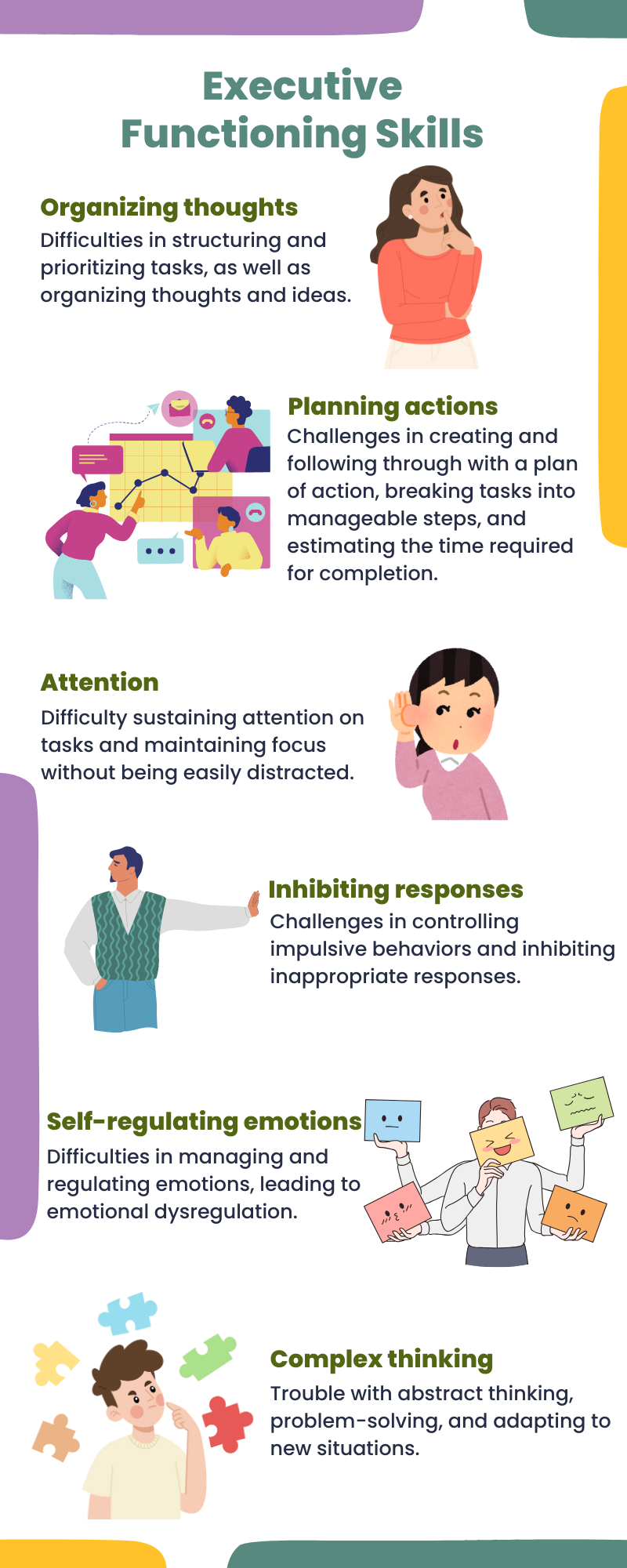
Table of Contents
As soon as autistic children reach adulthood, it is the responsibility of the parents and caregivers to develop essential life skills that are crucial for their independence and overall well-being. Autism therapy at home can play a significant role in this development by providing a comfortable and familiar environment for learning.
This article covers several key life skills that autistic adults need to develop to prepare them for the challenges of adulthood.
Daily Living Skills
Daily living skills are essential for autistic adults to lead independent lives. These skills encompass a wide range of tasks necessary for everyday functioning. Some important daily living skills for autistic adults include:
- Handling money – Understanding the value of money, budgeting, managing finances, and making appropriate financial decisions.
- Shopping – Knowing how to make purchases, compare prices, and make informed choices while considering personal preferences and needs.
- Paying bills – Understanding bill payment processes, managing due dates, and maintaining financial responsibilities.
- Housekeeping – Maintaining a clean and organized living space, including tasks such as cleaning, laundry, and basic home maintenance.
- Meal preparation – Learning to plan and prepare meals independently, including grocery shopping, meal planning, cooking, and practicing good hygiene during food preparation.
- Independent travel – Developing the skills necessary for safe and independent travel, such as navigating public transportation, reading maps, and understanding traffic rules.
Focusing on daily living skills helps autistic adults gain the necessary tools to lead more self-sufficient lives and actively participate in their communities.
Executive Functioning Skills
Executive functioning skills refer to a set of cognitive processes that help individuals organize their thoughts, plan their actions, and effectively manage their daily lives. People with autism spectrum disorder (ASD) may experience challenges with executive functioning skills, as illustrated below:
By providing support and guidance in developing executive functioning skills, autistic adults can enhance their ability to navigate daily life more independently.
Finance Budgeting Skills
Budgeting finances is crucial for self-sufficiency and independent living for adults with autism. It involves understanding income sources, essential expenses, responsible saving practices, and the ability to manage various payment methods like cash and debit cards.
By learning how to budget effectively, autistic adults can develop financial literacy and make informed decisions about their money.
Foundational Skills
One of the crucial foundational skills for autistic adults is self-advocacy. Self-advocacy plays a vital role in empowering individuals with autism to communicate their specific needs and desires effectively. It enables them to express themselves and seek appropriate help when encountering difficulties.
Encouraging self-advocacy in autistic adults involves providing them with the tools and strategies so they can effectively express themselves. This can include teaching them how to communicate their needs, preferences, and boundaries to others.
By developing self-advocacy skills, individuals with autism can actively participate in decision-making processes that affect their lives and ensure their voices are heard.
Self-advocacy also involves developing self-awareness and self-confidence. By understanding their strengths, challenges, and unique abilities, autistic adults can effectively articulate their needs and advocate for necessary support.
By nurturing self-advocacy skills, parents and caregivers can support autistic adults in various aspects of their lives, such as education, employment, and social interactions. This skill empowers individuals with autism to become active participants in their communities and make informed decisions that align with their goals and aspirations.
Occupational Skills
Learning occupational skills is vital for autistic adults to prepare for meaningful work opportunities. These skills enable individuals to develop the necessary tools and strategies to thrive in the workplace.
Some key occupational skills include:
- Job-seeking skills – This involves learning how to search for job opportunities, create resumes and cover letters, and prepare for interviews.
- Work habits – Developing good work habits such as punctuality, time management, and organization are crucial for success in the workplace.
- Following directions – Understanding and effectively following instructions is essential for completing tasks accurately and efficiently.
Focusing on occupational skills allows individuals with autism to enhance their chances of securing and maintaining employment.
Personal Care Skills
Personal care skills are essential for individuals with autism spectrum disorder (ASD) to navigate daily life with confidence and independence. These skills encompass various areas, including grooming, hygiene, exercise, stress management, illness management, and relaxation routines.
Safety Awareness Skills
Safety awareness plays a vital role in the lives of individuals with autism. It enables them to identify potential dangers, respect emergency procedures, understand risks at home and while traveling, and avoid unsafe situations.
Some key areas of safety awareness include:
- Identifying dangers – Teaching individuals with autism to recognize potential hazards in their environment helps them stay safe and make informed decisions.
- Emergency procedures – Understanding and following emergency procedures, such as fire drills or evacuation plans, can be crucial in times of crisis.
- Risk assessment – Providing guidance on how to assess risks, both at home and in public settings, empowers individuals with autism to make safer choices.
Social Skills
Social skills are highlighted as an essential area where many adults with autism may struggle, especially when navigating interactions with unfamiliar individuals in settings like workplaces or shopping environments.
Improving communication skills, self-regulation, and understanding social interaction norms are crucial for independent living.
It’s essential to recognize that children with autism may require continued support with certain tasks. However, each small step toward mastering a life skill contributes to their overall independence and self-confidence.
While complete independence might not be attainable for every child, even incremental progress can have a profound impact on their well-being and family dynamics.
By focusing on the positive steps forward and celebrating every achievement, no matter how small, parents can cultivate a supportive and encouraging environment that promotes growth and development. Ultimately, it’s the parent’s role to foster independence in their children and avoid things that could only hinder their development.
Sources:
https://harborschool.com/2022/01/19/the-7-essential-life-skills-for-those-with-autism
- 9 Common Obsessions of Children With Autism You Should Know - February 25, 2025
- What is Neurodiversity? A Guide to Embracing Differences - February 25, 2025
- Understanding Hyperfocus in Autism: What It Means and Why It Happens - February 25, 2025




